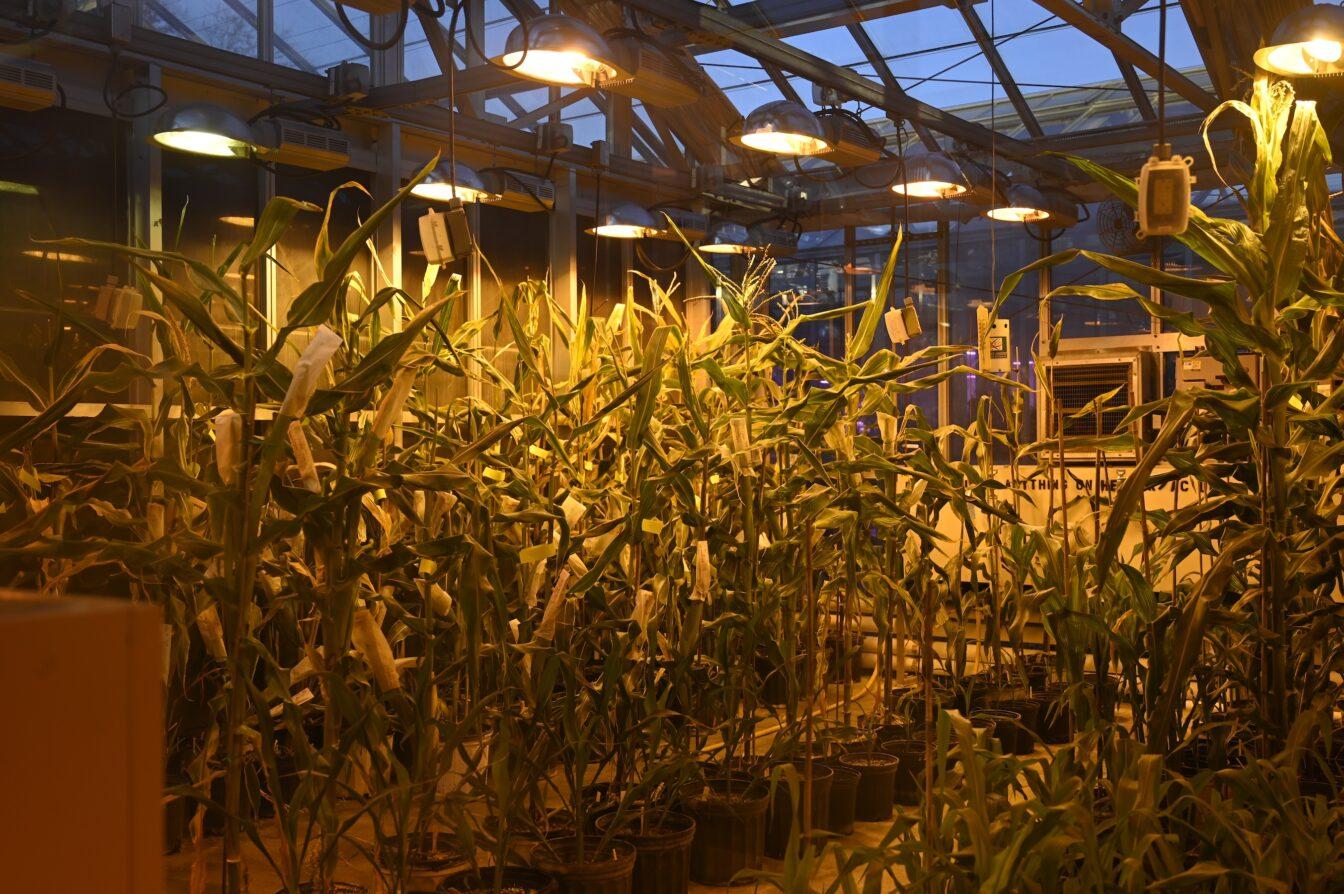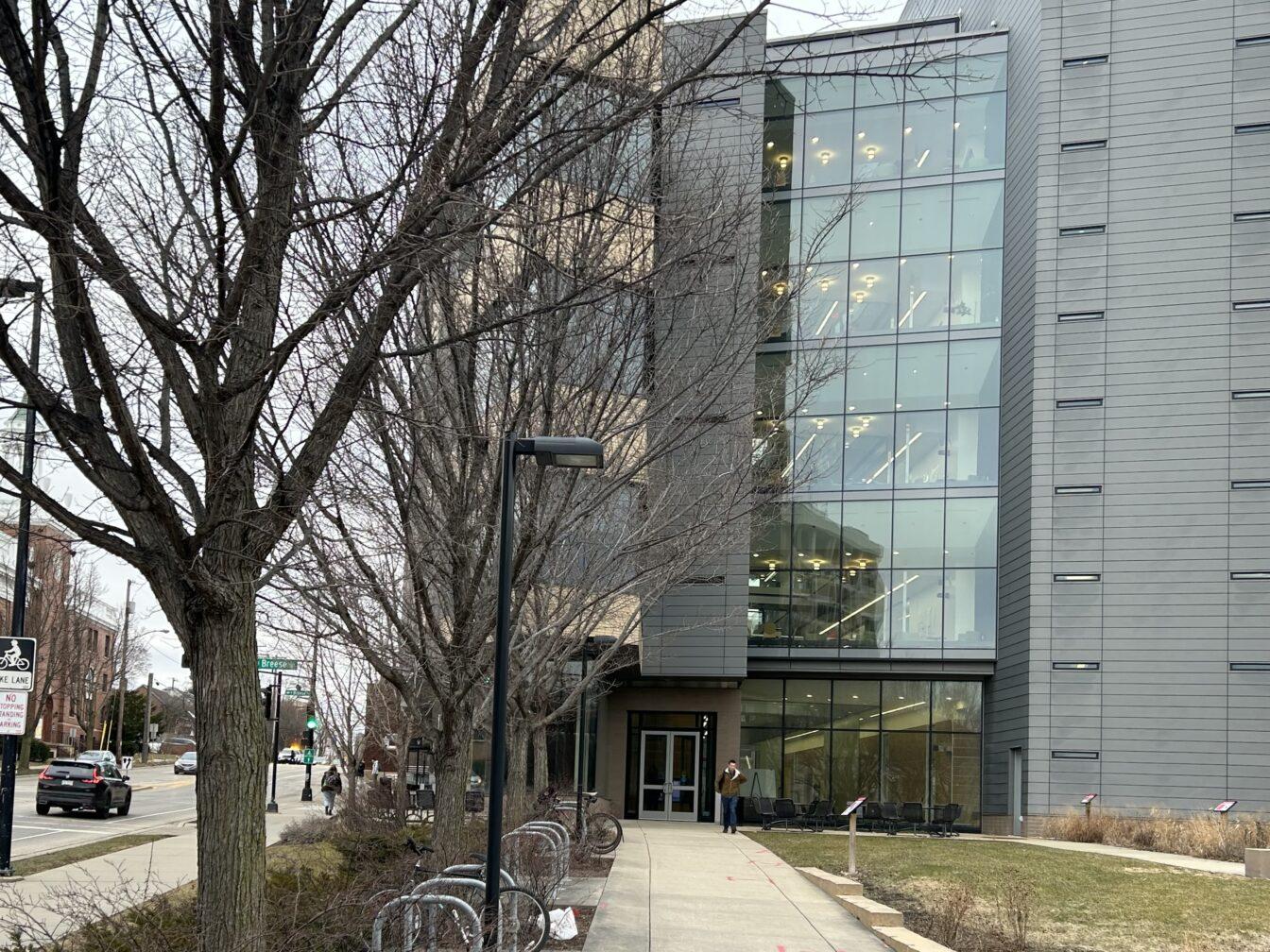The Wisconsin Energy Institute is researching methods to convert biological matter into fuel and plastics, with intentions to replace fossil fuels. Biofuels are created using biological material to convert their sugars into a fuel compound — many having diverse renewable energy applications, associate director of the Wisconsin Energy Institute Mary Blanchard said.
Ethanol, made from corn starch, is the most common biofuel in the United States, Blanchard said. Great Lakes Bioenergy Research Center director Timothy Donohue said ethanol is referred to as a first generation biofuel. But as scientific research progresses, “second generation” biofuels would be made from corn stocks, woody biomass or grasses grown specifically to produce energy for aviation, boat or long haul shipping fuels.
To convert the biomass from organic matter into fuel, it first needs to be chemically broken down, Blanchard said. The most common methods involve converting biomass into a hydrolysate — a liquefied biomass — or facilitating fermentation using microbes. Researchers are also exploring combusting the biomass into a gas, Blanchard said.
Dane County celebrates achieving 100% renewable electricity in county facilities
There is a lot of research studying how to make biomass into different fuels and products, Blanchard said. Some of these options, like biofuel made from waste and renewable plant materials, are especially environmentally sustainable.
Biofuels are carbon neutral, except for the transportation between the farm to the energy plant, Blanchard said. The amount of carbon dioxide consumed by a plant during its life is equivalent to the amount it would emit after being converted into a biofuel.
Biomass can also be used to create biochemicals. Modern plastics and petroleum are made from fossil fuels, but biochemicals could replace these unsustainable compounds, Donohue said. Great Lakes Bioenergy is researching methods for creating biochemicals using energy dense crops, which would offer increased profits by keeping the fuel price low, Donohue said.
One constraint of growing energy crops for biofuels is increased competition for land and resources with plant and animal agriculture for human consumption.
But, energy crops grown for biofuels don’t require as much water and fertilizer, which puts less pressure on resources needed for food crops, Donohue said. Excess fertilizer often inflates the emission of greenhouse gases when it is metabolized by soil microbes, so limiting the use of these products can decrease climate warming emissions, Donohue said.
Study calls attention to cancer disparities in marginalized communities
“If done right [sustainably], the production of biofuels would not compete with food production,” Donohue said.
Blanchard said Great Lakes Bioenergy scientists are researching the most economical and efficient plants to use for biofuel production. Some energy efficient crops are poplar trees, switch grasses and other perennial crops.
Most of Wisconsin’s energy resources are imported and not generated in the state, Blanchard said. Research into how agricultural and forestry waste and biomass can be converted into bioenergy can help Wisconsin grow economically and sustainably. If states were to produce their own energy source, it would offer a resilient fuel infrastructure and offer increased economic protection when natural disasters cause nationwide petroleum shortages, Donohue said.
“If a hurricane hits the Gulf of Mexico, many of the petrochemical refineries shut down,” Donohue said. “If they were making fuels in Wisconsin, you would have a backup to make them locally.”
The UW Extension Farm Management Program engages farmers by increasing education and outreach efforts about biofuel research and introduces them to the financial incentives that result from their participation in farming energy crops, Donohue said.
This educational engagement with foresters and farmers is especially important in addressing concerns about whether it’s worth investing in energy crop production, Donohue said. Farmers want to be sure their land will not be degraded by bioenergy plants, and feel confident there will be a market to sell the energy crops to.
Wisconsin’s freshwater ecosystems face change due to shorter, unpredictable winters, expert says
Biofuels would provide farmers and rural communities with more economic opportunities, Donohue said. If farmers can use agricultural waste, it’s more money they can save.
Blanchard works on bioeconomy, which describes the portion of the economy generating goods and services from biological resources. Blanchard’s bioeconomy project aims to connect stakeholders through a shared understanding of bioeconomy issues and address how biofuels can be made more efficiently while maintaining sustainability practices.
Biofuel production extends beyond plants — Wisconsin Energy Institute scientists are developing ways to harness microbial properties to convert dairy residue in biochemicals, Donohue said. Biochemical products from cows, like manure, and excess whey from cheese and yogurt products can be converted into biodegradable plastics, Donohue said.
Wisconsin is in a unique position to use agriculture industry waste into a profit instead of a disposal cost, Donohue said.
“By its nature, bioenergy and bioproducts need to be located near the biomass because it’s too expensive to transport the biomass long distances,” Blanchard said. “So there’s a lot of opportunity to grow rural economies around the state.
















